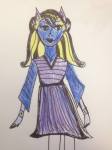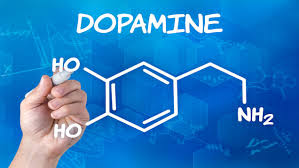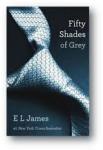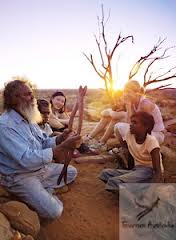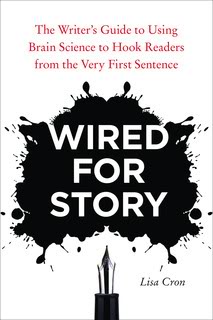I’ve been following KM (Katie) Weiland’s ‘Helping Writers Become Authors’ for a few years. She recently posted this piece on character motivation. It’s excellent, so I asked Katie if she’d share it with DyingWords followers.
Every story comes down to just one thing. Know what it is?
 Conflict’s a good guess (“no conflict, no story” and all that), but before a story can offer conflict, it has to first offer something else:desire. In short, story is always going to be about a character’s goal.
Conflict’s a good guess (“no conflict, no story” and all that), but before a story can offer conflict, it has to first offer something else:desire. In short, story is always going to be about a character’s goal.
Your character has two conflicting goals. The thing he Needs. And the thing he Wants.
Between them, these two desires drive your entire story, pushing and pulling your protagonist and the people around him until they end up in a completely different place from that in which they began the story.
But here’s another question for you: Does it matter what your character wants?
Obviously, a character’s goal has to tie into the plot in a logical way. But there’s more. In order to resonate deeply with your very human audience, your character’s goal needs to be one of five specific things.
Take a look at the motivation triangle in Maslow’s Hierarchy of Needs and Why It Matters to Authors.
Abraham Maslow’s “hierarchy of needs” is a theory that suggests all human desires fall into five categories, grouped from basic physical needs to those of self-empowerment and realization: physiological, safety and security, love and belonging, esteem and recognition, and self-actualization.
According to Maslow, the order of these five needs is also the progression humans must experience as they grow into a better awareness of themselves and the world around them, allowing them to become centered, healthy individuals.
Same goes for your character. Your character’s wants and needs–your character’s goal–is going to fall into at least one of those categories, depending on where he currently finds himself in his progression from primal survivor to empowered individual.
Let’s take a closer look at each of the five categories of needs.
1. Physiological
Physiological needs are those essential to human survival. Without these, your character dies. They’re the foundation of the pyramid. If your character has to consciously think about pursuing these needs, then he’s not likely to have the time or energy to devote much thought or effort to those needs higher up on the scale. Physiological needs might include:
- Air
- Water
- Food
- Clothing
- Shelter
EXAMPLE OF A CHARACTER’S GOAL:
In Gone With The Wind, Scarlett O’Hara’s vow to “never be hungry again” is born of her starved search for a root in the ruined fields of Tara at the end of the Civil War.
2. Safety and Security
Once physiological needs have been met, your character’s goal will most likely evolve into a desire for safety and security for himself and those he cares about. He wants to protect his body, so he doesn’t have to consciously think about his physiological needs. Safety and security needs might include:
- Protection against assault or injury
- Adequate money
- Steady employment
- Good health
- Protection of private property
EXAMPLE OF A CHARACTER’S GOAL:
In The Maze Runner, Alby and the other boys build a sustainable sanctuary in the Glade in order to avoid the lethal Grievers that roam the Maze.
3. Love and Belonging
Once basic physical needs are met and assured for the foreseeable future, your character will get to focus on his emotional needs and desires. If your character isn’t on the run or trying to keep from getting killed, then he’ll probably be dealing with interpersonal conflict in an attempt to find harmony and fulfilment in his relationships with other people. Love and belonging needs might include:
- Friendship
- Romance
- Intimacy
- Family
EXAMPLE OF A CHARACTER’S GOAL:
In Wuthering Heights, every bit of Heathcliff’s lifelong quest for vengeance is based on his burning desire to be loved (especially by Cathy) and to find a sense of belonging in a world that rejected him almost entirely from his childhood onward.
4. Esteem and Recognition
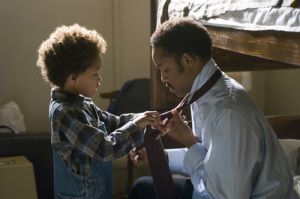 Once your character has his physical and emotional needs reasonably met, he’s going to start wanting to feel as if who he is and what he does is worthy of respect. We all want to feel as if we’re doing a good job, as if we’re making a difference in the world around us. Otherwise, what’s the point? Your character’s goal in this category may not be immediately quantifiable as a desire for “esteem and recognition.” What readers may end up seeing on the page will be simply his desire to be President, to get someone to buy his invention, or to get an A+ on his history paper. Esteem and recognition needs might include:
Once your character has his physical and emotional needs reasonably met, he’s going to start wanting to feel as if who he is and what he does is worthy of respect. We all want to feel as if we’re doing a good job, as if we’re making a difference in the world around us. Otherwise, what’s the point? Your character’s goal in this category may not be immediately quantifiable as a desire for “esteem and recognition.” What readers may end up seeing on the page will be simply his desire to be President, to get someone to buy his invention, or to get an A+ on his history paper. Esteem and recognition needs might include:
- Independence
- Compensation
- Respect
- Promotion
- Credit
- Gratitude
- Appreciation
EXAMPLE OF A CHARACTER’S GOAL:
In The Pursuit Of Happiness, Chris Gardner wants to not just find a job that will allow him and his son to survive, but to become a successful stockbroker.
5. Self-Actualization
 Finally, at the tippy-top of that hierarchy of needs is the desire to find and fulfil the deeper meaning in life. Your character wants to do more than just live, he wants to thrive. He wants to reach the full extent of his personal potential. He probably has most of his other needs taken care of, which allows him the time and energy to focus on discovery and creation. Self-actualization needs might include:
Finally, at the tippy-top of that hierarchy of needs is the desire to find and fulfil the deeper meaning in life. Your character wants to do more than just live, he wants to thrive. He wants to reach the full extent of his personal potential. He probably has most of his other needs taken care of, which allows him the time and energy to focus on discovery and creation. Self-actualization needs might include:
- Higher education
- Spiritual enlightenment
- Artistic pursuits
- Travel and experience
- Altruistic and charitable contributions to others
EXAMPLE OF A CHARACTER’S GOAL:
In My Man Godfrey, Godfrey abandons his riches and social position to live first as a hobo and then as butler to another wealthy family, out of a desire to find a purpose in his entitled life.
When Your Character’s Needs Overlap
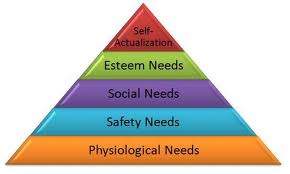 Have you spotted which of the categories into which your protagonist’s story goal fits? It could be his goal actually fits into more than one category. In fact, it’s pretty likely. Life isn’t exactly as neat as Maslow likes to make it look. We may be struggling through any combination of these needs all at the same time. For example, the protagonist in Pursuit of Happiness has a main goal that fits into all the categories except Love and Belonging (and we could maybe even make an argument for that one too).
Have you spotted which of the categories into which your protagonist’s story goal fits? It could be his goal actually fits into more than one category. In fact, it’s pretty likely. Life isn’t exactly as neat as Maslow likes to make it look. We may be struggling through any combination of these needs all at the same time. For example, the protagonist in Pursuit of Happiness has a main goal that fits into all the categories except Love and Belonging (and we could maybe even make an argument for that one too).
As Angela Ackerman and Becca Puglisi point out in the appendix to their Negative Trait Thesaurus (which includes tons of great examples of goals and motivations for all five categories of needs):
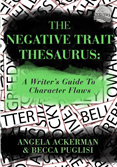 Please note that needs may fit into multiple categories depending upon the character’s motivation. For example, the need to acquire an education could be based on a need for security (if the character’s purpose is to escape a bad neighborhood), esteem (if the goal is being pursued out of desire to prove oneself to others), or self-actualization (if the character is seeking knowledge as a way to become more self-aware).
Please note that needs may fit into multiple categories depending upon the character’s motivation. For example, the need to acquire an education could be based on a need for security (if the character’s purpose is to escape a bad neighborhood), esteem (if the goal is being pursued out of desire to prove oneself to others), or self-actualization (if the character is seeking knowledge as a way to become more self-aware).
In many stories, an overlap between the categories can actually be an asset, since it creates multidimensional motivations and goals for your character.
But even if your character’s goal only falls into one of these categories, you’ll be able to verify you’ve created a deeply realistic story, one that will resonate on a primal level with readers everywhere.







